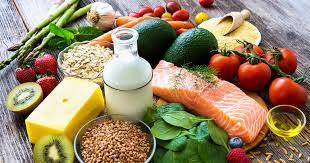A Guide to Building a Healthy Diet: Recommended Foods for Optimal Nutrition
Eating a balanced and nutritious diet is essential for maintaining overall health and well-being. By incorporating a variety of nutrient-dense foods into your meals, you can provide your body with the essential vitamins, minerals, and macronutrients it needs to thrive. In this article, we'll explore the recommended foods for a healthy diet that can support optimal nutrition and promote overall wellness.
1. Fruits and Vegetables: Fruits and vegetables are the cornerstone of a healthy diet, providing a rich array of vitamins, minerals, fiber, and antioxidants. Aim to include a colorful variety of fruits and vegetables in your meals, such as leafy greens, berries, citrus fruits, carrots, and bell peppers, to ensure you're getting a wide range of nutrients.
2. Whole Grains: Whole grains are an excellent source of complex carbohydrates, fiber, and essential nutrients like B vitamins and minerals. Opt for whole grains such as oats, quinoa, brown rice, barley, and whole wheat bread, pasta, and couscous to provide sustained energy and promote digestive health.
3. Lean Proteins: Incorporate lean sources of protein into your diet to support muscle growth, repair, and overall health. Choose options like skinless poultry, fish, tofu, tempeh, legumes, lentils, and beans, which are rich in protein while being low in saturated fats and cholesterol.
4. Healthy Fats: Include sources of healthy fats in your diet, such as avocados, nuts, seeds, and fatty fish like salmon, mackerel, and sardines. These foods provide essential omega-3 and omega-6 fatty acids, which are important for heart health, brain function, and reducing inflammation.
5. Dairy or Dairy Alternatives: Dairy products and dairy alternatives can be valuable sources of calcium, vitamin D, and protein. Choose low-fat or non-fat options like skim milk, yogurt, and cheese, or opt for fortified plant-based alternatives like almond milk, soy milk, and coconut yogurt.
6. Legumes and Pulses: egumes and pulses, including beans, lentils, chickpeas, and peas, are nutrient-rich sources of plant-based protein, fiber, vitamins, and minerals. Incorporating these foods into your diet can help reduce the risk of chronic diseases like heart disease and diabetes while promoting satiety and digestive health.
7. Healthy Snacks: Choose nutrient-dense snacks to satisfy hunger between meals and provide additional nourishment. Examples include fresh fruit, raw vegetables with hummus, Greek yogurt with berries, whole grain crackers with nut butter, or a handful of nuts and seeds.
8. Hydration: Don't forget the importance of staying hydrated by drinking plenty of water throughout the day. Water is essential for regulating body temperature, supporting digestion, flushing out toxins, and maintaining overall health. Aim to drink at least eight glasses of water daily, or more if you're physically active or in hot weather.
By incorporating these recommended foods into your diet on a regular basis, you can create a foundation for optimal health and nutrition. Remember to focus on variety, balance, and moderation, and aim to enjoy a wide range of nutrient-dense foods from all food groups to support overall wellness and vitality. Making small, sustainable changes to your eating habits can lead to significant improvements in your health and well-being over time.






0 Comments